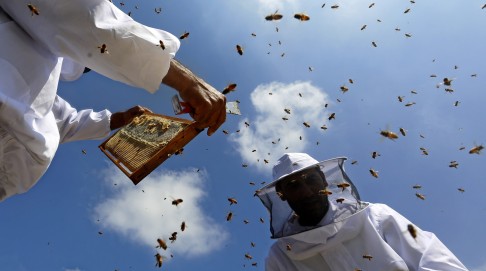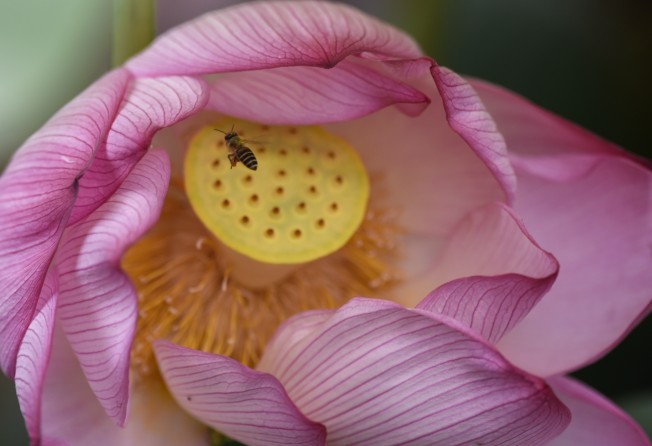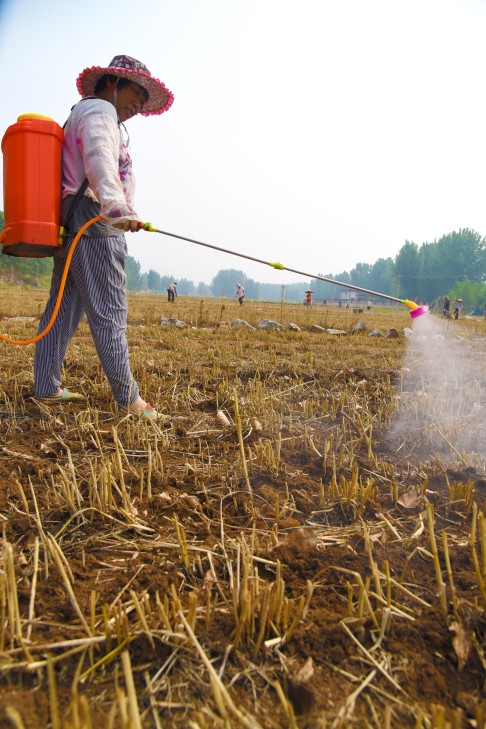
Top pesticide may pose threat to bee colonies, ecological balance, Chinese study finds

The world’s most popular pesticide could be damaging the central nervous systems of honey bees, thus posing a threat to the stability of ecological systems, Chinese scientists claim.
Recent tests in southern China showed that subjecting the flying insects to imidacloprid significantly impacted their learning process.
This made it harder for them to find flowers to pollinate. Many food crops and natural plant communities require pollination by insects, principally bees, to reproduce.
Agricultural bee colonies have been dying out at a high rate in parts of the world for the last decade, with commercial beekeepers in the United States reportedly losing up to half of their colonies in recent years.
Imidacloprid was suspected as a possible culprit. Although proven to be safe for humans and other mammals, it contains neurotoxic chemicals that are similar to nicotine - a source of pleasure for humans that can be deadly for many insects.
Yet evidence of its role in the bees' decline has proven elusive. Even though the pesticide can cause paralysis and ultimately death in some insects, it does not usually kill honey bees.
To learn more, the Chinese team designed an experiment to measure the bees’ learning curve during the pollination process.
They wanted to ascertain whether the chemicals in the pesticide were slowing down the speed with which the bees associate floral odours with nectar rewards, thus lowering their chances of survival.
The team was led by professor Tan Ken, who works for the Chinese Academy of Sciences’ Xishuang Banna Tropical Botanical Garden in southern Yunnan province. The tests were conducted in the prefecture.
Instead of following the bees individually, the team recorded the overall performance of colonies, and compared those that were exposed to the chemical compound with those that were not, according to their paper published in the latest issue of the journal Scientific Reports.
“There was a noticeable difference,” Tan said.
“It’s hard to tell whether a single bee was a slow learner [using empirical observation], but scientific data from a whole colony has helped us to paint a grim but reliable picture of the negative effects [of exposure].”
The exposed bees took nearly five times longer to find a flower, if they succeeded at all, the study found.
The scientists drew the conclusion that the nicotine-like chemicals were severely damaging the bee’s central nervous systems. Even at low levels of exposure deemed safe, the bees could still be left “stupefied”, the team said.
Tan said banning or restricting use of the pesticide may not be a practical solution.
Previous studies found that a total ban on the use of imidacloprid, and other pesticides of a similar nature, could theoretically cause a 40 per cent reduction of agricultural crop yields in Europe due to a lack of viable substitutes, Tan said.
